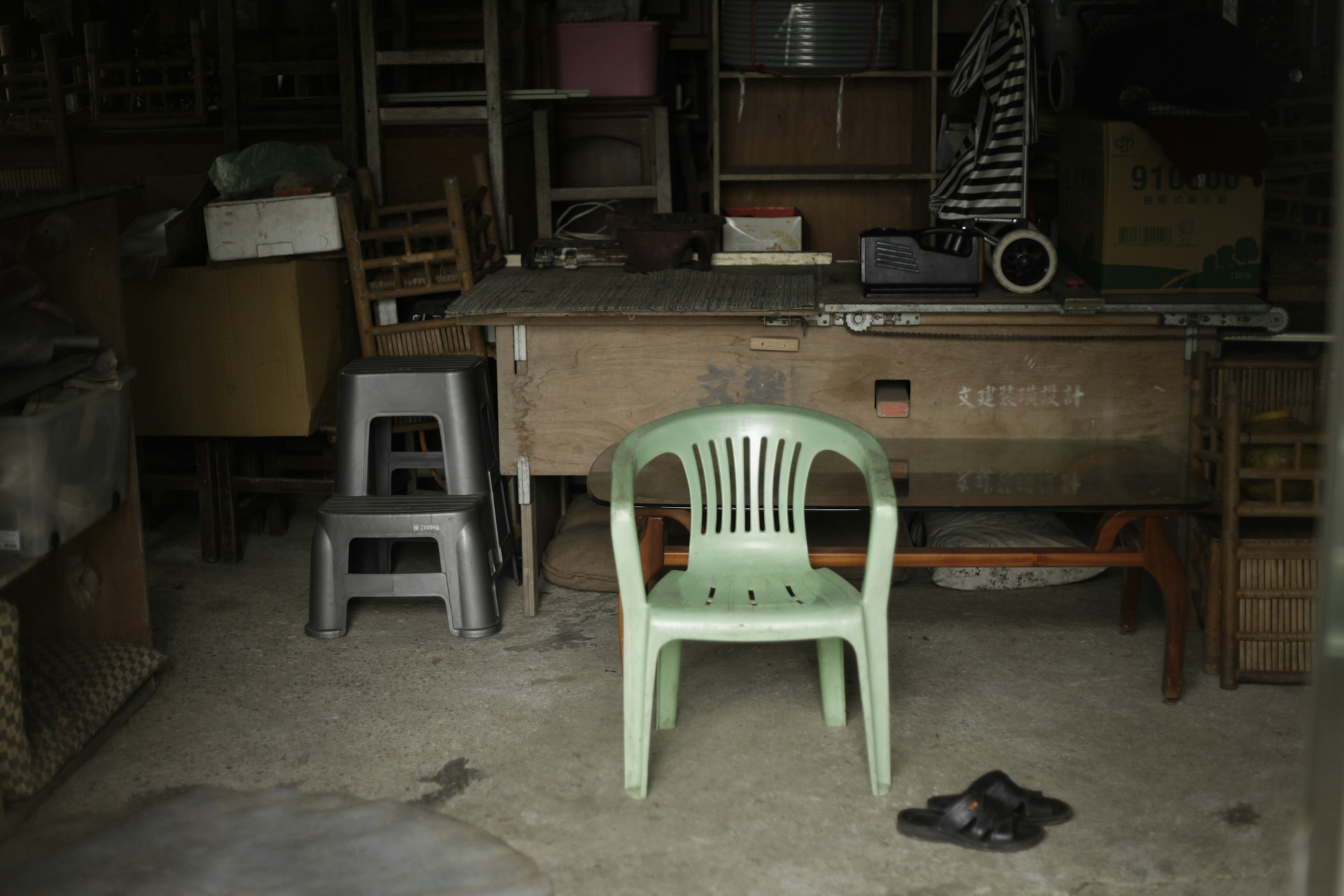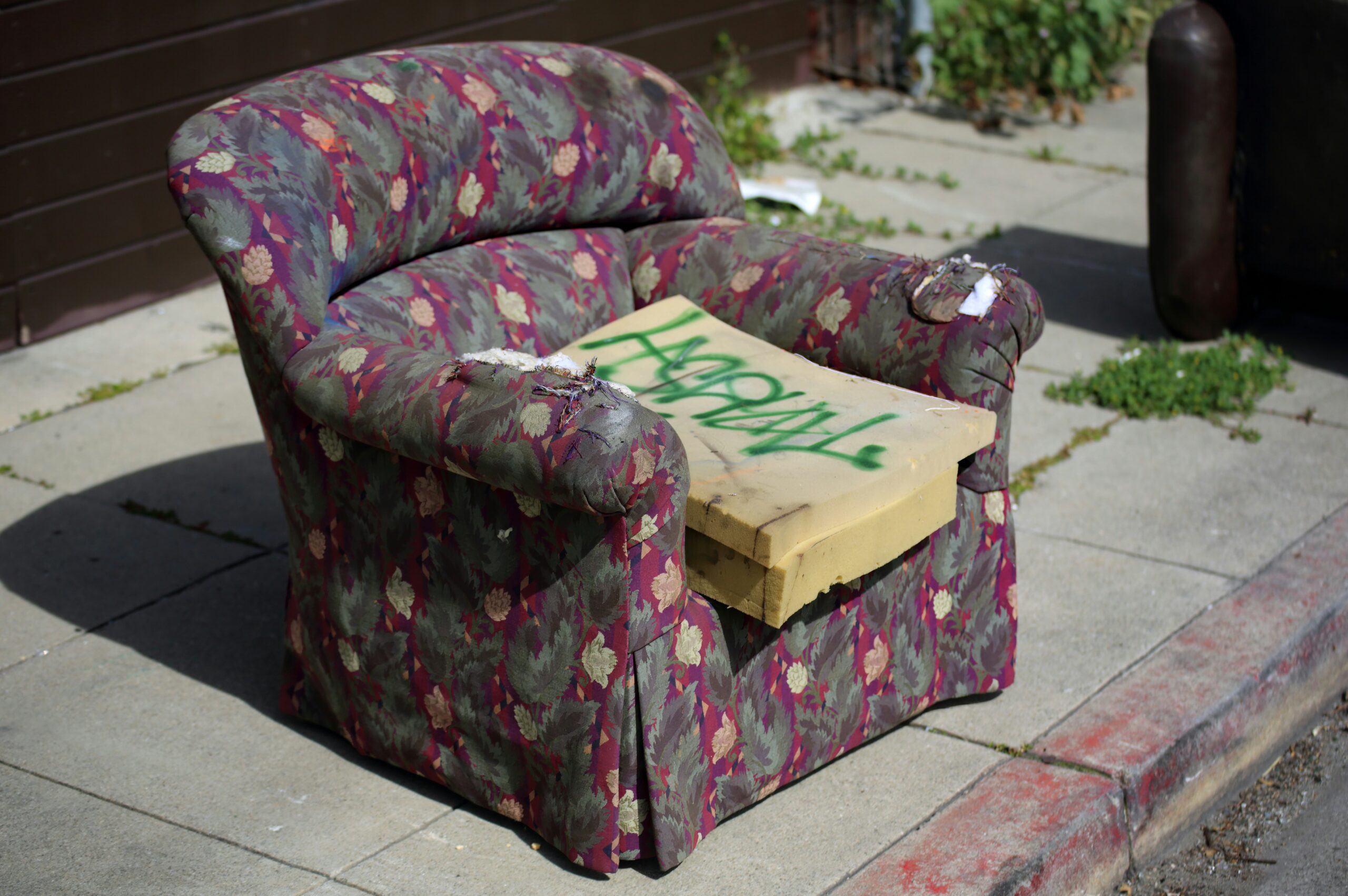Can Landlords Charge Move-Out and Item Removal Fees in Massachusetts?
. Posted in News - 0 Comments
By Kimberly Rau, MassLandlords, Inc.
Can a landlord in Massachusetts charge their former tenant to remove items left behind once the tenancy has ended? The state is very strict about what move-in monies a landlord can collect, but what about fees for services performed after the renter has moved out?

Did your renter leave a few things behind after turning in the keys? You can get rid of them, as long as you have permission in writing. (Image: Unsplash)
State law is clear that the only move-in fees a landlord can assess are first and last month’s rent, a security deposit and actual costs for new locks. Other up-front charges, such as pet deposits, are unlawful. Mid-tenancy fees including pet rent are a bit of a gray area, but gray only because the appeals court decided the case of Flemming v. Greystar rather than the Supreme Judicial Court; otherwise, the ruling is clear. But what about when a tenant moves out, leaving furniture or other items behind? Can landlords have a clause in their lease for bulk item or trash removal? As with many aspects of being a rental housing provider in Massachusetts, it’s not as simple as saying yes or no.
Move-Out Fees: Likely Lawful, Proceed Carefully
There’s nothing in Massachusetts law that specifically prohibits move-out fees. But that doesn’t mean you can charge your renters whatever you’d like after the fact. MGL Chapter 93A prohibits landlords from acting in unfair or deceptive ways. In other words, you should let your tenants know about any move-out charges for things like item removal at lease signing.
Your practices should be clearly described in the rental agreement, including what will happen to the items (such as disposal), and a cost estimate for removal. If you’re not sure what to charge, you can call your city or town or check their website. Most municipalities will pick up furniture and appliances for disposal for a fee. You can refer to the fee or fee schedule in your rental agreement and include language along the lines of “fees are assessed based on the city’s bulk trash fee schedule as posted at the time of move-out.” This allows you to charge what your municipality actually charges, in case fees increase over the course of the tenancy.
Some cities will only pick up one large, or “bulky,” item per week. If this is the case, your lease addendum could also include a provision that dumpster rental rates will be assessed if the number of items left behind exceeds what can reasonably be removed within a week or two. Be prepared to show receipts for actual dumpster rental costs if you go this route.
Another option before paying for a dumpster or bulky item pickup would be to place items outside and offer them for free in local Facebook groups. Many things you may consider trash are things scrappers or furniture rehabbers might want. A “curb alert” on social media with photographs is one way to get rid of abandoned items. Search for community discussion pages and join your local “Buy Nothing” Facebook group. Make sure your municipality allows furniture to be placed outside. Have a backup plan if the items are not taken away within the allowed time frame.
Note: No one wants old mattresses, even for free, and many dumpster companies prohibit mattress disposal or charge a premium for the service. (Note that the law since 2022 has been that textiles including mattresses must be recycled.) Save the headache and schedule pickup with your city or town.

Curb Alert: Find out what your city charges for bulky item removal, and include those prices in your lease. (Image: Simon Hurry for Unsplash)
You Must Have Renter Permission to Remove Abandoned Property
Before you go about disposing of left-behind property, understand that you must have permission in writing from your former tenant to do so. And you have to know for sure they are out.
If the tenant has not returned keys and hasn’t explicitly told you they are moved out, they are still considered in possession of the unit. You cannot touch their things until you have both possession of the unit and permission to do so (either a lease clause or a text or email chain where the tenant specifically tells you they are out, and that you can dispose of their items).
Move-Out Fees and Item Disposal Do Not Apply to Evictions or Abandoned Units
If your tenant is evicted, you cannot simply dispose of their belongings. Landlords in Massachusetts are subject to the state’s move and store laws, which regulate removal and storage of an evicted renter’s belongings.
The law says the landlord must pay for the removal. The storage is technically at the former tenant’s expense, but if storage facilities require up-front payment, it will be at your expense until you can get reimbursed by your renter. Good luck with that, unless they actually come back for their things. You can file another court case to recover your money, but collecting on judgments in your favor is often difficult.
This also applies to units that are abandoned without notice from the renter. You will need court permission to remove items from the apartment. That means you will need to formally evict the renter (even if they are unlikely to show up to court) and then follow move-and-store laws for anything left behind.
Do Not Touch the Security Deposit
We can find no case law saying lease addendums for left-behind items are unlawful (let us know if you know of one). But under no circumstances should you deduct these charges from the security deposit.
Security deposit law in Massachusetts is very strict. Landlords may only deduct for actual expenses for damages unrelated to reasonable wear and tear. A unit full of left-behind furniture and/or garbage is unlikely to be considered “damage.” Therefore, the cost of a dumpster or flat-rate removal would be unlikely to qualify as a lawful reason to deduct from the security deposit. If your renter were to challenge your deductions and a judge sided with them, you could be facing triple damages and attorney’s fees. That’s not worth it for furniture removal.
If you want to charge your renter move-out fees such as deep cleaning or item removal, include those provisions in your lease and bill them separately.
My Lease Has a Clause for Move-Out Fees. How Do I Collect?
Since you cannot deduct move-out fees from a security deposit, your only recourse is to bill your renter after they move out. If you use RentHelper to collect rent, you may see some additional success with collecting on related invoices. With the tenant’s permission, RentHelper reports rent payments to the credit bureaus, allowing renters to build credit for their on-time payments (and incentivizes them to avoid negative marks from paying late). Ignoring a bill could land on their credit report. This is an advantage to using RentHelper to collect rent versus a free online bill pay service.
If you do not use RentHelper, or if your former tenant ignores the invoice anyway, you may have to return to court to get a judgment in your favor. If the move-out fees in your lease are considered lawful and do not run afoul of consumer protection laws, you may be successful in small claims court. However, this has not been tested in court yet (as far as we know).
Whether pursuing a judgment and subsequent collection is worth it is up to you.
Do you know of any court cases dealing with move-out fees in Massachusetts? Email us at hello@masslandlords.net .




